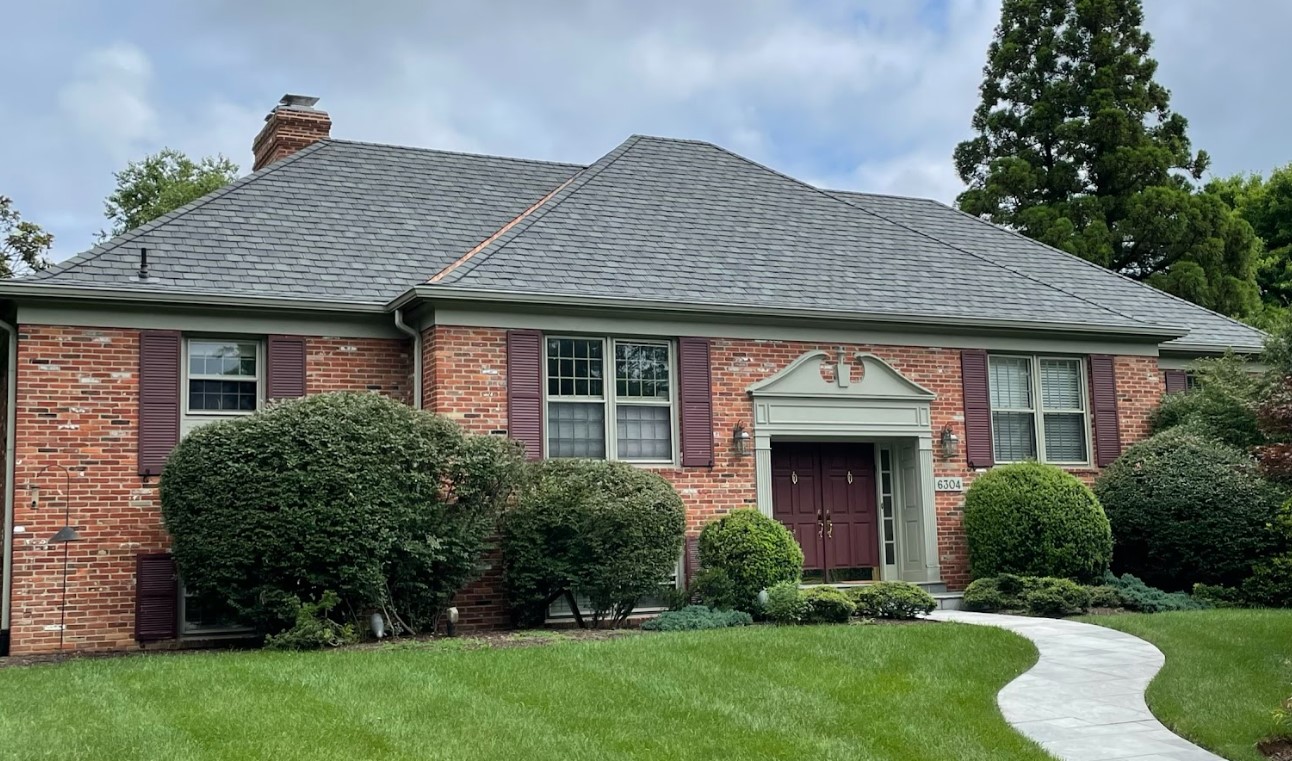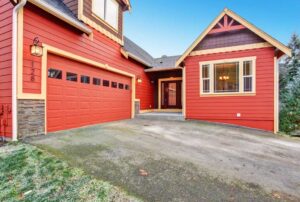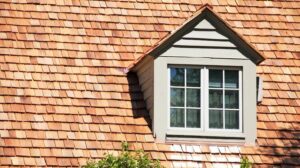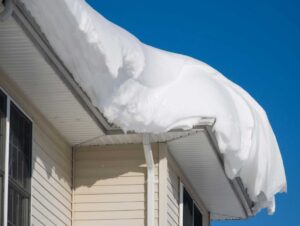Picture This…
It’s January in Northern Virginia. The trees are bare, the wind is howling, and your neighborhood looks like something out of a snow globe. Beautiful? Sure. But if your roof isn’t built for this kind of weather, all that winter charm can turn into a costly headache.
Ice dams, shingle cracks, sneaky leaks—it’s what we see every season when roofs aren’t ready for the cold. That’s why this guide matters.
Let’s talk about what really makes a roof work in a cold climate. What materials hold up? Can you even install shingles in cold weather? And when does a metal roof make more sense than asphalt shingles?
At Master Roofing & Siding, we’ve been roofing since 1974—through blizzards, windstorms, and everything in between. We know what works here in Northern Virginia’s winters, and more importantly, we know what doesn’t.
Here’s what we’ll break down:
- The best shingles for cold, windy, icy conditions
- How metal roofing compares to asphalt in our climate
- What to know if you’re installing a roof this winter
- How to protect your home without overpaying
Want to skip the reading and talk to a real person? Click here to request a free estimate.
Why Cold Weather Wrecks Some Roofs in Northern Virginia
Let’s keep it real—Virginia winters aren’t always deep freeze, but they’re unpredictable. One day it’s 50°F, the next it’s snowing sideways.
Those freeze-thaw cycles, combined with rain, wind, and the occasional snowstorm, can push your roof to its limit.
Here’s what we see every winter:
- Shingles cracking from sudden drops in temperature
- Ice dams forming along the eaves, causing water leaks
- Shingles lifting because they weren’t sealed properly in the cold
- Cheap materials breaking down under moisture and wind stress
Your roof needs to handle all that—without drama. That starts with choosing the right materials and knowing what’s safe when it comes to installing shingles in cold weather.
Before You Buy: What to Know About Winter Roof Work
Thinking about replacing your roof before spring? Here’s what you need to keep in mind:
Yes, You Can Install Shingles in Cold Weather
…but it takes skill. Most shingles have adhesive strips that need heat to seal. When it’s cold, our crews hand-seal each one to make sure your roof is watertight from day one.
Expect a Smart, Honest Estimate
A full asphalt shingle roof replacement usually starts around $10,000. Metal roofing? More upfront, but lasts decades. We also offer interest-free payment options to make it manageable.
Permits and Codes Still Apply
You’ll need a roofing permit in most counties. And yes, code often requires ice and water shield underlayment to guard against winter leaks. We include it in all our winter-ready roof installs.
Best Roofing Shingles for Cold Weather in Northern Virginia
Let’s get into the good stuff—what roofing materials actually hold up when it’s freezing, wet, and windy.
1. Architectural Asphalt Shingles (The Neighborhood Favorite)
Brands we trust: CertainTeed Landmark, Tamko Heritage, Owens Corning Duration, GAF Timberline
These are a big upgrade from those flat 3-tab shingles. Architectural shingles are thicker, more dimensional, and much better at resisting cold-weather wear and tear.
Why they work in winter:
- Hold strong against wind gusts
- Less likely to crack in the cold than older 3-tab styles
- Long-term warranties (up to 50 years with CertainTeed)
Heads up:
They need to be installed correctly in cold temps, or they might not seal. Our crews warm them and hand-seal each row when needed. That’s why it matters who installs your roof.

2. Impact-Resistant Shingles (For Tree-Covered Homes)
Example: CertainTeed NorthGate IR
Got big trees near your house? These shingles are flexible and tougher than standard asphalt—so they’re less likely to crack when hit by falling limbs or heavy snow.
Cold climate pros:
- Stay flexible even below 40°F
- Top-tier impact resistance
- May help lower insurance premiums
3. Standing Seam Metal Roofing (The Long-Term Choice)
Built in-house by Master Roofing & Siding
Here’s where the metal roof vs shingles in cold climates conversation gets real.
Metal wins in a lot of winter categories:
- Snow slides right off
- No ice damming issues
- Lasts 40–70 years
- Requires almost zero maintenance
But there’s a trade-off:
Metal costs more upfront, and it’s louder in the rain unless you add insulation (which we can do). If you want a roof that handles winter like a pro, this is it.
4. Synthetic Slate & Cedar Roofing (Luxury Looks, Cold-Weather Strength)
Product we use: EcoStar
This is for homeowners who love the look of natural slate or cedar—but want something that won’t crack or rot in winter.
Why it’s a great cold-climate pick:
- Class 4 impact rated
- Handles freezing temps without breaking
- Light enough for most roof structures (unlike real slate)
Cold-Weather Roofing Techniques Matter—A Lot
We say this with love: the best shingles in the world won’t work if they’re installed wrong. And winter installs come with their own rules.
Here’s how Master Roofing & Siding handles cold-weather installations:
- We warm shingles in our trucks before install
- Every shingle gets hand-sealed (no shortcuts)
- We don’t install when it’s too cold or wet—your roof’s integrity comes first
- We use code-compliant underlayment like ice and water shield to keep water out
Bonus: We still offer a 10-year workmanship warranty, even for winter jobs. Why? Because we’re confident in the work—and we’re not using fly-by-night subcontractors.
Cold-Weather Roofing Questions from Northern Virginia Homeowners
Still have questions about installing or replacing your roof during the winter? You’re not alone. At Master Roofing & Siding, we’ve answered thousands of questions from homeowners across Alexandria, Fairfax, and the surrounding area—especially when it comes to how cold weather affects roof materials, timing, and performance.
Here are some of the most common questions we hear (and our expert, local answers):
Can you really install shingles in cold weather?
Yes, shingles can be installed in cold weather, but the installation must follow specific cold-weather techniques. At Master Roofing & Siding, we warm the shingles before installation and hand-seal each one to ensure proper adhesion. When done right, cold-weather shingle installs are just as effective and warrantied as warm-weather projects.
Which roofing materials hold up best in Northern Virginia winters?
The roofing materials that hold up best in Northern Virginia’s winters are metal roofing and impact-rated asphalt shingles. Metal roofs are excellent for snow and ice shedding, while Class 4 impact-resistant shingles like CertainTeed NorthGate IR offer strong wind and cold-weather performance without the higher cost of metal.
What causes roof leaks during winter in this region?
Roof leaks during Northern Virginia winters are usually caused by ice dams, cracked or improperly sealed shingles, and poor ventilation. These issues let water back up under the roof covering. We prevent these problems by installing full-perimeter ice and water shields, using cold-weather sealing methods, and ensuring your attic is properly ventilated.
Is a metal roof better than shingles in cold climates like Virginia?
Yes, a metal roof is often better than shingles in cold climates like Northern Virginia, especially when snow shedding, ice dam prevention, and long-term durability are priorities. However, impact-rated asphalt shingles also perform very well in cold temperatures and remain a more affordable option for many homeowners.
Does installing a roof in the winter affect the warranty?
Installing a roof in the winter does not affect the warranty—as long as it’s installed using manufacturer-approved cold-weather methods. We follow all guidelines required by CertainTeed, GAF, and other major manufacturers to ensure your material warranty stays fully intact. Our own workmanship warranty is also valid year-round.
Can I replace my roof in the winter, or should I wait until spring?
Yes, you can replace your roof in the winter in Northern Virginia if the weather cooperates. As long as temperatures stay above 40°F and it’s dry, winter installations are not only possible—they’re often faster to schedule. We monitor the weather closely and only proceed when conditions allow for a safe and effective install.
What shingles last the longest in cold-weather regions like Northern Virginia?
The shingles that last the longest in cold-weather regions like Northern Virginia are architectural asphalt shingles with enhanced warranties and Class 4 impact ratings. Brands like CertainTeed Landmark Pro and NorthGate IR offer durability, long-term protection, and performance tailored to the freeze/thaw conditions of our region.
Final Word: A Roof That’s Ready for Winter Starts with the Right Team
Winter isn’t the time to gamble on your roof.
If you’re a homeowner in Northern Virginia, choosing the right shingles for cold weather could mean the difference between a cozy season and costly repairs. Whether you’re debating metal vs. asphalt, or just wondering if shingles can be installed in cold weather, we’ve got answers—and solutions.
Master Roofing & Siding has been doing this since 1974. Our crews are employees, not subs. We show up, do it right, and back our work.
Ready to talk options? Schedule your free estimate today Let’s build you a roof that keeps your home warm, dry, and winter-proof.




